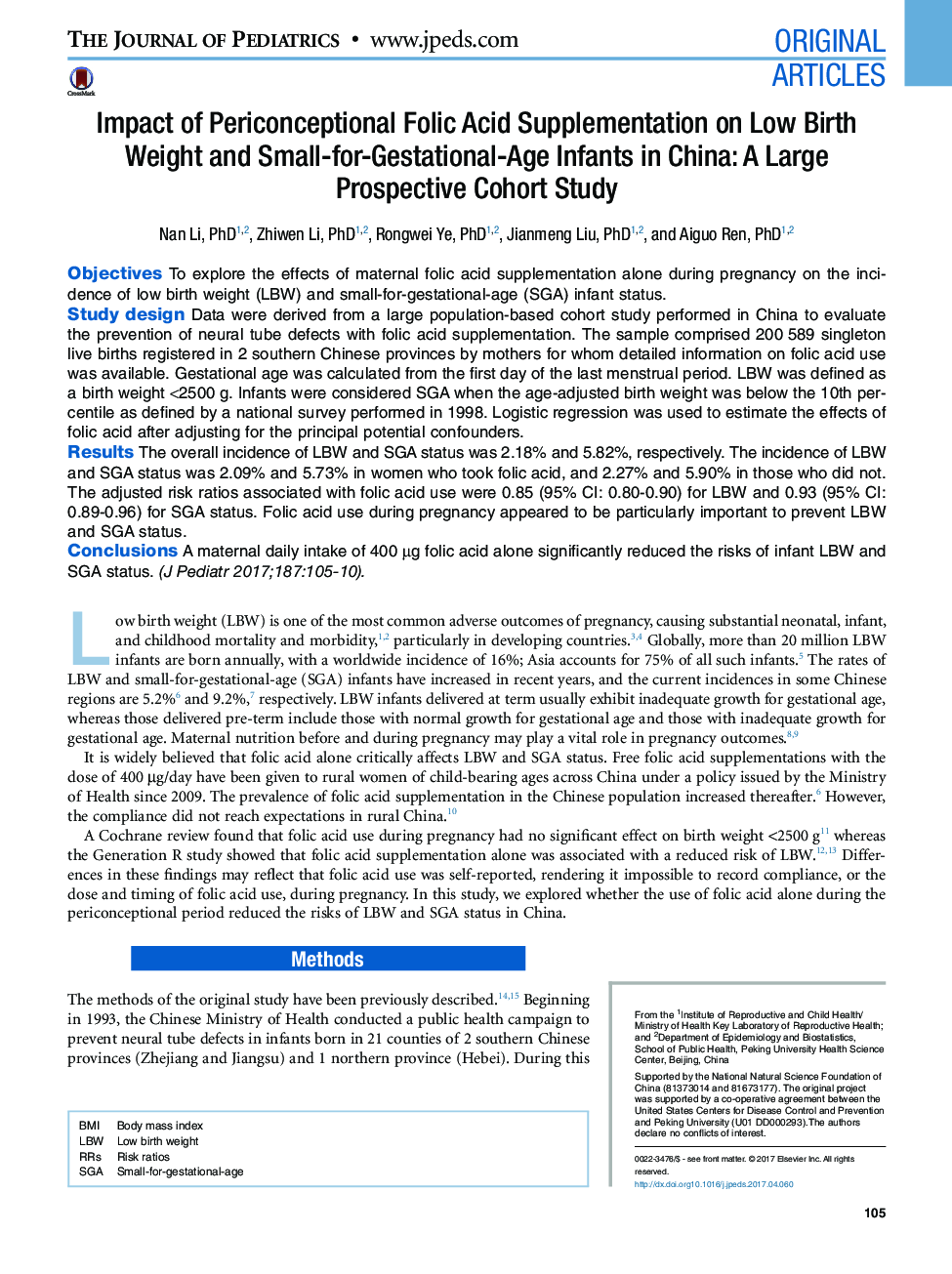| Article ID | Journal | Published Year | Pages | File Type |
|---|---|---|---|---|
| 5719042 | The Journal of Pediatrics | 2017 | 6 Pages |
ObjectivesTo explore the effects of maternal folic acid supplementation alone during pregnancy on the incidence of low birth weight (LBW) and small-for-gestational-age (SGA) infant status.Study designData were derived from a large population-based cohort study performed in China to evaluate the prevention of neural tube defects with folic acid supplementation. The sample comprised 200â589 singleton live births registered in 2 southern Chinese provinces by mothers for whom detailed information on folic acid use was available. Gestational age was calculated from the first day of the last menstrual period. LBW was defined as a birth weight <2500âg. Infants were considered SGA when the age-adjusted birth weight was below the 10th percentile as defined by a national survey performed in 1998. Logistic regression was used to estimate the effects of folic acid after adjusting for the principal potential confounders.ResultsThe overall incidence of LBW and SGA status was 2.18% and 5.82%, respectively. The incidence of LBW and SGA status was 2.09% and 5.73% in women who took folic acid, and 2.27% and 5.90% in those who did not. The adjusted risk ratios associated with folic acid use were 0.85 (95% CI: 0.80-0.90) for LBW and 0.93 (95% CI: 0.89-0.96) for SGA status. Folic acid use during pregnancy appeared to be particularly important to prevent LBW and SGA status.ConclusionsA maternal daily intake of 400âµg folic acid alone significantly reduced the risks of infant LBW and SGA status.
